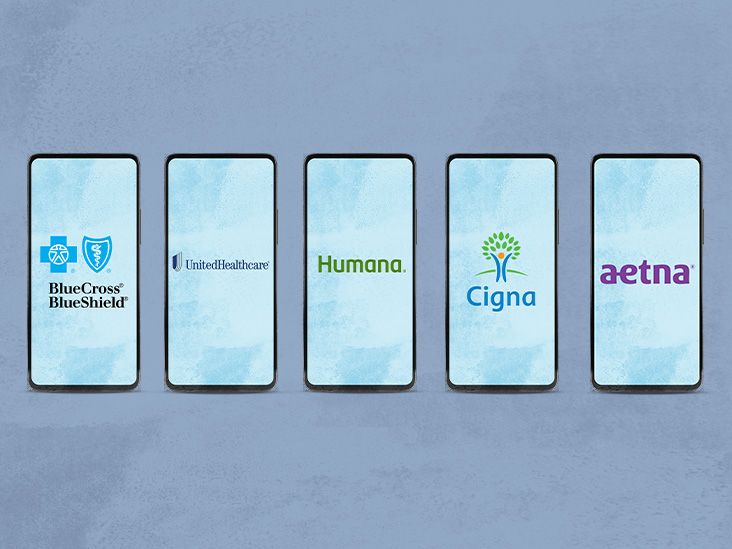Let's be honest navigating Medicare can feel like trying to solve a puzzle blindfolded, especially when you're already dealing with health concerns or caring for someone you love. Right when you think you've got a handle on things, you hear about something like the Medicare 3-midnight rule, and suddenly you're wondering if you're going to get hit with unexpected bills that could drain your savings account faster than you can say "skilled nursing facility."
Here's the thing you're not alone in feeling this way. I've watched friends and family members struggle with exactly these questions after a hospital stay. The good news? Once you understand what the Medicare 3-midnight rule actually means, you'll feel so much more confident about protecting yourself and your loved ones from surprise costs.
What This Rule Really Means
Let's start with the basics, because confusion is the enemy here, and knowledge is your best defense. The Medicare 3-midnight rule is essentially Medicare's way of saying, "Before we help pay for your care in a skilled nursing facility, we want to make sure you've had a genuine medical event that requires this level of care."
Think of it this way if you sprain your ankle, you probably don't need three days in the hospital followed by specialized nursing care, right? But if you've had major surgery or a serious medical event, that's when this rule makes sense. Medicare wants to ensure that SNF care is tied to actual medical necessity, not just convenience.
So what does it actually require? You need to have three consecutive days as a hospital inpatient before Medicare will help cover your skilled nursing facility costs. And here's the important part it's not just about spending time in the hospital. It's specifically about being formally admitted as an inpatient.
How Time Actually Gets Counted
This is where things can get a little tricky, so let's break it down together. The clock doesn't start ticking the moment you arrive at the hospital. Nope you have to be officially admitted as an inpatient by a doctor. Time spent in the emergency room or under observation status? That doesn't count toward your three days.
Here's how the counting works: each midnight-to-midnight period counts as one full day, even if you're only in the hospital for a few hours during that period. Let me give you a real-life example that might help. My neighbor Sarah was admitted on Tuesday night at 11:50 PM. Even though she was only in the hospital for a few minutes that first day, it still counted as Day 1. When midnight hit, that became Day 2. The next midnight? Day 3. By 1 AM on Friday, she had officially met the requirement.
But here's what's crucial the day you're discharged doesn't count. So if you're admitted Tuesday at 11:50 PM and discharged Friday morning, you'd have Tuesday (Day 1), Wednesday (Day 2), and Thursday (Day 3). That's your three days met.
What About Observation Status?
Now, this is where a lot of people get tripped up, and I can't stress enough how important this is. If you're placed under observation status instead of being formally admitted as an inpatient, that time doesn't count toward the 3-midnight rule. I've seen families devastated to learn that their loved one's 4-day hospital stay didn't qualify them for Medicare SNF coverage because they were technically under observation the whole time.
If you find yourself in observation status for more than 24 hours, the hospital is required to give you something called a Medicare Outpatient Observation Notice (MOON). Don't just file this away read it carefully. It will tell you your current status and what that means for your coverage.
Here's what I always tell people: ask, ask, and ask again. Don't be shy about asking your nurse or doctor whether you're an inpatient or in observation status. Your care team might think they've already explained this, but they'll appreciate your vigilance in understanding your situation.
When Rules Don't Quite Fit
Here's the beautiful thing about healthcare there's almost always an exception to every rule, and the Medicare 3-midnight rule is no different. While most people do need to meet this requirement, there are situations where it can be waived.
Some accountable care organizations and certain Medicare innovation programs have permission to bypass the 3-midnight rule in specific circumstances. If you're part of one of these programs or being treated at a facility that is, you might qualify for SNF coverage without the traditional three-day inpatient stay.
The key is knowing whether this applies to your situation. If you're not sure, don't hesitate to ask. You'd be surprised how many people don't realize they might qualify for these exceptions simply because they never thought to ask the question.
The Real Cost Impact
Let's talk about what this all means for your wallet, because that's probably one of your biggest concerns. Once you've met the 3-midnight requirement, Medicare Part A steps in to help cover your skilled nursing facility costs. But it's not a blank check there are still costs you need to be aware of.
| Days | Coverage | Cost to Beneficiary |
|---|---|---|
| Days 120 | Full coverage (Part A) | $0 |
| Days 21100 | Daily copayment required | $209.50 per day (as of 2024) |
| Beyond 100 days | No Medicare coverage | Full cost borne by patient |
And don't forget about the Part A deductible that's $1,676 per benefit period as of 2024. That's the amount you'll pay out-of-pocket before Medicare starts covering most of your hospital and SNF costs.
But here's what happens if you haven't met the 3-midnight requirement this is where families really get caught off guard. Without that qualifying hospital stay, Medicare Part A won't kick in for SNF coverage at all. You'll be responsible for the entire cost, which can easily run into thousands of dollars per month.
Protecting Yourself Proactively
Knowledge really is power when it comes to Medicare, and the more you know upfront, the better positioned you'll be to protect yourself from unexpected expenses. Here are some questions I always recommend asking while you're still in the hospital:
- "Am I currently an inpatient or in observation status?"
- "Is this admission considered medically necessary?"
- "Will this qualify me for Medicare-covered skilled nursing facility care later?"
- "Can we make sure everything is properly documented for my transition to an SNF?"
I know it can feel awkward to ask these questions, especially when you're not feeling well or are worried about a loved one. But trust me, your care team wants you to understand your situation. They'd much rather spend a few extra minutes explaining things to you than have you face surprise bills later.
Pay attention to the documents you're given too. The MOON notice I mentioned earlier is crucial if you're in observation status. There's also something called an SNF Advance Beneficiary Notice of Non-Coverage (SNF ABN) that facilities are supposed to give you if they think Medicare won't pay for your care. These documents aren't just paperwork they're your roadmap to understanding what you'll be responsible for paying.
What If Something Goes Wrong?
We all make mistakes, and sometimes the system doesn't work perfectly. Maybe you thought you had three inpatient days but something got misclassified. Maybe there was a legitimate medical reason you should have been admitted as an inpatient but weren't.
The good news? You have options. If you believe there was an error in your classification or if you think your situation warrants an exception, you can request a review. There are appeal processes in place specifically for these situations, and many people successfully get their coverage reconsidered.
The key is acting quickly and gathering documentation to support your case. Keep all your medical records, notices, and any correspondence with your healthcare providers. The more evidence you have that you met medical necessity criteria, the stronger your case will be.
Making It All Work for You
Look, I know this all sounds complicated, and there's no sugarcoating it Medicare rules can be frustrating. But here's what I want you to remember: you don't have to navigate this alone, and small actions now can save you from big headaches later.
The next time you or a loved one is hospitalized, think of yourself as a detective. Ask questions, take notes, and don't be afraid to advocate for what you need. Remember that a few minutes of clarity now can prevent months of financial stress down the road.
And if you're reading this because you're currently facing a transition to a skilled nursing facility, take a deep breath. You've taken the first step by educating yourself, and that's huge. Talk to your social worker, your case manager, and your family about your options. Most importantly, don't make any major decisions until you fully understand what's covered and what isn't.
We've all been in situations where healthcare billing feels overwhelming, but remember you have rights, you have resources, and you have people who want to help you figure this out. Whether it's your doctor's office, your insurance company, or even Medicare's own helpline, there are people available to answer your questions.
The Medicare 3-midnight rule might seem like just another piece of bureaucratic red tape, but when you understand what it's really about and how it affects your care, it becomes a tool you can use to your advantage. You're not just checking boxes you're protecting your health, your finances, and your peace of mind.
So the next time someone mentions this rule, you'll be ready. You'll know exactly what questions to ask, what to look for in your documentation, and most importantly, you'll know that you have everything you need to make informed decisions about your care.
That's the real power of understanding Medicare not just saving money, but gaining confidence in your ability to navigate the healthcare system on your own terms.
Disclaimer: This article is for informational purposes only and does not constitute medical advice. Always consult with a healthcare professional before starting any new treatment regimen.
Related Coverage
Get clear info on South Dakota Medicare options, costs, and enrollment. Compare plans and find local help for 2025 coverage....
Secondary aging is influenced by lifestyle and health choices. Learn how to slow it down and age healthier....
Get clarity on how Medicare handles preexisting conditions and waiting periods. Know your coverage options and make informed decisions....
Learn how AARP Medicare Advantage plans work, including benefits, costs, and how they compare to other Medicare options....
Find out how Medicare caregiver coverage works, who qualifies, what services are paid, and tips to avoid costly surprises....
Embrace the power of superfoods and elevate your conscious lifestyle. Discover 15 nutrient-dense powerhouses that offer a wealth of benefits for your body, mind, and spirit....
Get Medicare Part D plans for 2025, compare costs, formularies, pharmacy networks, and the new out‑of‑pocket cap to save money....
Find the best Montana Medicare options for your needs. Compare plans, save money, and get the coverage you deserve in Big Sky Country....
Can you opt out of Medicare while on Social Security? Get clear guidance on Social Security Medicare opt out rules and exceptions....
Find the right Medicare in Texas with our guide to coverage options, plans, and enrollment tips for Texans....









